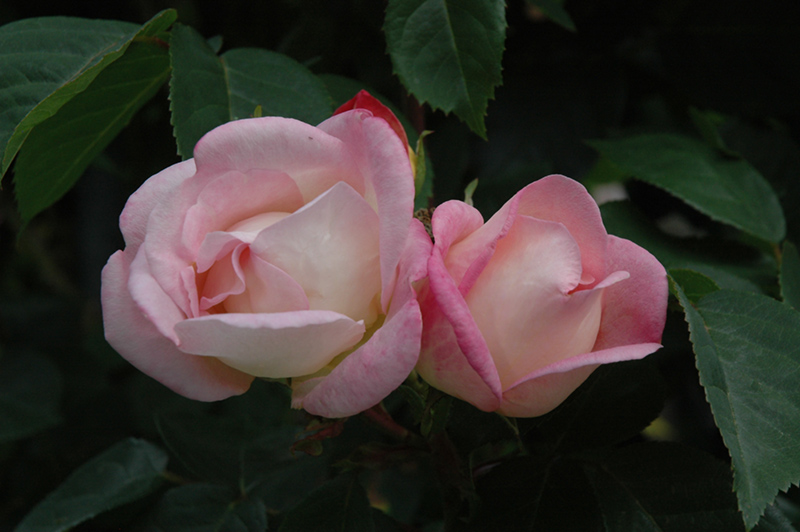>> Home
Height: 6 feet
Spread: 3 feet
Sunlight:
![]()
Hardiness Zone: 4b
Other Names: Bright Eyes
Group/Class: Shrub Rose
Description:
A delightful climber with gentle semi-double pink flowers that fade to white in the centers and cheerful yellow eyes, vigorous and notably disease resistant, great for trailing up a trellis or arbor
Ornamental Features
The Brite Eyes Rose features showy lightly-scented semi-double pink flowers with yellow eyes and white centers along the branches from early spring to late summer. The flowers are excellent for cutting. It has dark green deciduous foliage. The glossy oval compound leaves do not develop any appreciable fall color.
Landscape Attributes
The Brite Eyes Rose is a multi-stemmed deciduous woody vine with a twining and trailing habit of growth. Its average texture blends into the landscape, but can be balanced by one or two finer or coarser trees or shrubs for an effective composition.
This woody vine will require occasional maintenance and upkeep, and is best pruned in late winter once the threat of extreme cold has passed. Gardeners should be aware of the following characteristic(s) that may warrant special consideration;
- Spiny
The Brite Eyes Rose is recommended for the following landscape applications;
- Accent
- Mass Planting
- Hedges/Screening
- General Garden Use
Planting & Growing
The Brite Eyes Rose will grow to be about 6 feet tall at maturity, with a spread of 3 feet. As a climbing rose, it can be leggy near the base and may be concealed by underplanting with lower-growing facer plants. It should be planted near a fence, trellis or other landscape structure where it can be trained to grow upwards on it, or allowed to trail off a retaining wall or slope. It grows at a fast rate, and under ideal conditions can be expected to live for approximately 20 years.
This woody vine should only be grown in full sunlight. It does best in average to evenly moist conditions, but will not tolerate standing water. It is not particular as to soil type or pH. It is somewhat tolerant of urban pollution. This particular variety is an interspecific hybrid.
